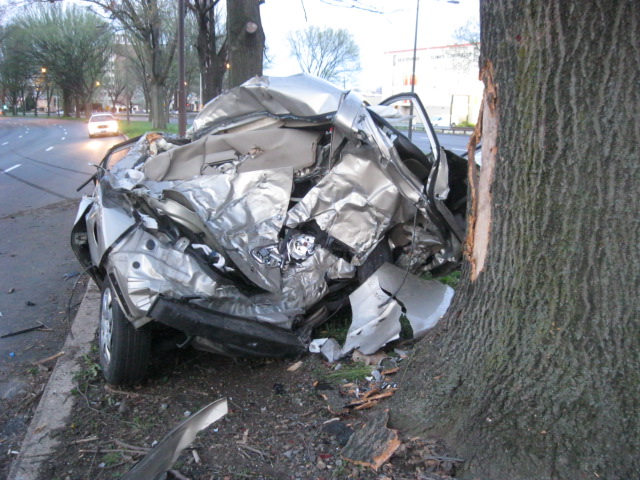Last week, Pennsylvania House Representative John Taylor (177th District) introduced House Bill 1187 to allow the deployment of speed cameras on one of the State’s and City’s deadliest roadways: Roosevelt Boulevard. The Bicycle Coalition has been working on this issue for several years and passage of this legislation is a goal of Mayor Kenney’s Vision Zero Action Plan. Last year, 12 people died on the Boulevard. While the Boulevard makes up less than half of one percent of the 2,500 miles of roads in Philadelphia, 15% of Philadelphia’s roadway deaths occurred there in 2016.
The bill will amend Pennsylvania vehicle code Title 75, providing for an automated speed enforcement system pilot program on 9 miles of Route 1 (Roosevelt Boulevard), spanning from 9th Street in Philadelphia to the Bucks County line.
Warning signs will notify drivers and must be, as stated in the bill, “conspicuously placed at the beginning and end and at two-mile intervals” so drivers are adequately notified. Violations will be issued only to those operating 11 miles per hour or more over the posted speed limit. Warning notices with no fines will be issued for the first two months; after that time period, each violation will be $150 and no points will be added to the driver’s license.
Representative Taylor repeatedly has made it clear that safety is the primary reason for his legislation. The system is being designed to take appropriate precautions to protect drivers, and the fines collected will pay for the system’s operation. Any funds left over will be designated for road safety improvements, in a similar manner to how revenue collected from red light camera fines are currently deployed.


Speed cams have been abolished in 19 jurisdictions in the US. The public at large almost inevitably ends up with the strong impression that these are put in more for revenue than for safety, mostly because of inaccuracies and predatory, as opposed to safety oriented, speed settings. Getting a ticket for $150 a month after an event is an insult to the constitution, not to mention the lack of a proper hearing being available, yet these improper provisions are in the bill. Those issues need to be fixed, along with concerns about camera accuracy, which should be checked periodically by an entity other than the company supplying the cameras. 11 miles over sounds generous, but the issue of just how proper the speed limit is needs to be explored statistically via a proper engineering study. Any ticketing that occurs should occur near the threshold of danger, not at X amount above a speed limit which may have been set arbitrarily and not according to that proper engineering study. Where is the statistical study that would provide PROPER ENGINEERING DATA about what the speed setting should be? Not required by this poorly written bill. People getting tickets for what rational, safe drivers are convinced is a safe speed is THE problem with speed cams. This bill sorely needs to be re-written so the public will NOT have the feeling it is being ticketed unfairly. Bottom line: Those wanting the cameras should want these things so if cameras are installed, they will survive. If people think they are being treated unfairly, they will go away.